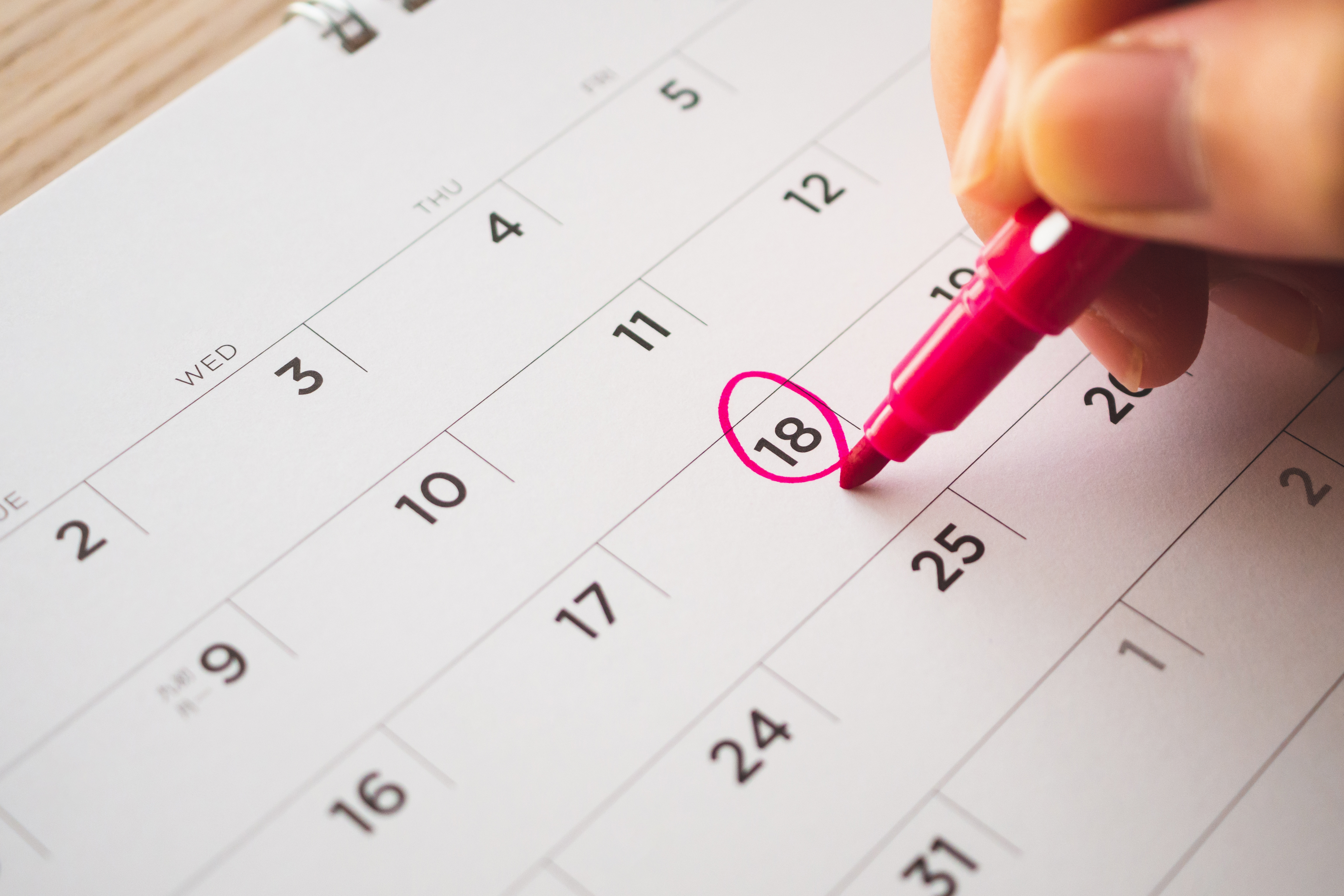
If you're trying to conceive (TTC), you want to know whether you're pregnant as soon as possible so you can start taking care of your baby and preparing for its arrival. You're probably wondering just how accurate home pregnancy tests really are, especially those early pregnancy tests that can give you an answer even before you miss a period.
The good news? Home pregnancy test kits have come a long way since their early days and are now more accurate and easier to use than ever. In this article, we’ll explore when to take a pregnancy test, how early you can take a pregnancy test, and how reliable they are for early pregnancy detection.
When Should I Take a Pregnancy Test?
Certain pregnancy tests detect pregnancy as early as 5 days before your expected period. If you retest on the day of your expected period, the accuracy is over 99%.
If you have an irregular cycle and are unsure when your period is due, health professionals advise waiting at least 21 days after unprotected sex before taking the test.
Understanding How Pregnancy Tests Work
If you’re wondering when to take a pregnancy test, it’s important to understand how at-home pregnancy tests work .
In pregnancy, a fertilized egg travels to the uterus and begins to implant in the uterine wall. When implantation is successful, small traces of hCG start showing up in your urine around 7-9 days after ovulation. This is the hormone that at-home pregnancy tests are designed to detect.
If you decide to test early, before your period is due, remember that even if you get a “not pregnant” result, you might still be pregnant. This is due to variations in hCG levels among women. When you test early, there might not be enough of the hormone for the test to show a positive result. During early pregnancy, hCG levels rise rapidly.
The day of your expected period is the day your period is due to start. If your period has not started by the following day, that is considered your “missed period.” If you are experiencing early pregnancy symptoms, implantation bleeding, or a missed period, you can use the First Response™ calculator tool to calculate how soon you can take a pregnancy test.
Remember the accuracy of a pregnancy test can be influenced by factors such as sensitivity of the test relative to your menstrual cycle, and how you follow the test instructions. If you have any doubts or questions about your pregnancy test results, like seeing a faint line on your test, it’s a good idea to consult with a healthcare professional.
When is the Best Time to Take a Pregnancy Test?
If you’re testing before your expected period when hCG levels are lower, you should test with the first urine of the day, as this is when hCG levels are more concentrated. Avoid drinking a lot of liquid before testing. Also, make sure to use an “early test” like the FIRST RESPONSE™ Early Result Pregnancy Test which can used 6 days before your missed period.
How Accurate Are Pregnancy Tests?
According to most pregnancy kit manufacturers, at-home pregnancy tests are around 99% accurate when taken after a missed period and when used correctly. At-home pregnancy tests are user-friendly and convenient. It’s always important to read the instructions on these tests before taking them.
How Accurate Are Early Pregnancy Tests?
Some pregnancy tests, such as FIRST RESPONSE Early Result and FIRST RESPONSE™ Digital Pregnancy Test can give you an answer before you've even missed a period. FIRST RESPONSE™ Digital Pregnancy Test detected pregnancy hormone levels in 60% of pregnant women 5 days before their expected period. By 4 days before their expected period, the test was accurate at detecting pregnancy hormones for 86% of pregnant women, and the number increased to 96% of pregnant women 3 days before their expected period and more than 99% of pregnant women 2 days before, 1 day before, and on the day of their expected period. The closer you are to the expected start of your menstrual period, the more accurate early pregnancy tests become.
How Soon Will a Pregnancy Test Read Positive?
Although the exact testing method of different pregnancy tests can differ from one type to the other, they all look for HCG in your urine. For the most accurate reading, it’s still recommended that you wait until you’ve missed your period.

How Early Can You Take a Pregnancy Test?
Keep in mind that the earlier you test, the more likely you are to get a false negative, even if you are pregnant. If you get a negative test and then miss your period, take another test, or consult your healthcare provider.
It’s important to follow the instructions on the test package to get the timing right. Following these instructions makes sure you’re getting the most accurate and trustworthy results.
How Common Are False Results on Pregnancy Tests?
Getting a false negative can happen when the test is taken too early. Another reason for a false negative can be mistakes made while using the test, like using too much or too little urine. It’s important to follow the directions on your pregnancy test kit to make sure you get an accurate result.
Getting a false positive is not common, but it can still happen. This may be the case if you experience a chemical pregnancy or lose the pregnancy shortly after the fertilized egg attaches to your uterine wall.
If the test says you’re not pregnant but you still suspect you are, it’s a good idea to test again in a few days, or see your healthcare practitioner.
Why Accurate Tests and Early Pregnancy Detection Matters
The first few weeks of pregnancy are critical to fetal development, so early prenatal care is important for a healthy birth and baby. The sooner you know you're pregnant, the sooner you can begin making healthy choices for yourself and your baby such as diet, nutrition, and limiting your exposure to hazards.
Planning for a family is an exciting time. If you and your partner are thinking about taking this life-changing journey, the earlier you prepare for pregnancy, the better. Consider joining the FIRST RESPONSE Pregnancy Hub for tips and stories from other women on a similar pregnancy journey.
You Expect Accurate Results from Your Pregnancy Test
The more sensitive a pregnancy test is, the earlier you will know if you are pregnant. The FIRST RESPONSE™ Early Result Pregnancy Test allows you to confirm pregnancy as soon as 5 days before your expected period. Or test early and often with the FIRST RESPONSE Comfort Check Pregnancy Test, which includes 3 Early Result Pregnancy Test Sticks and 5 Test Strips in one package. Get an early start on making healthy choices for both you and your baby.
